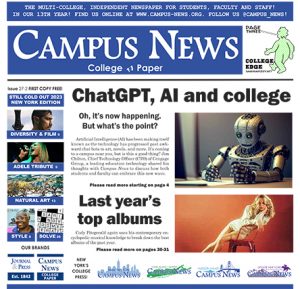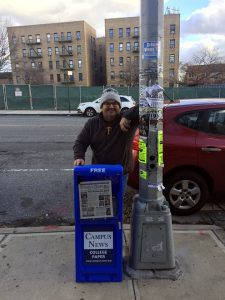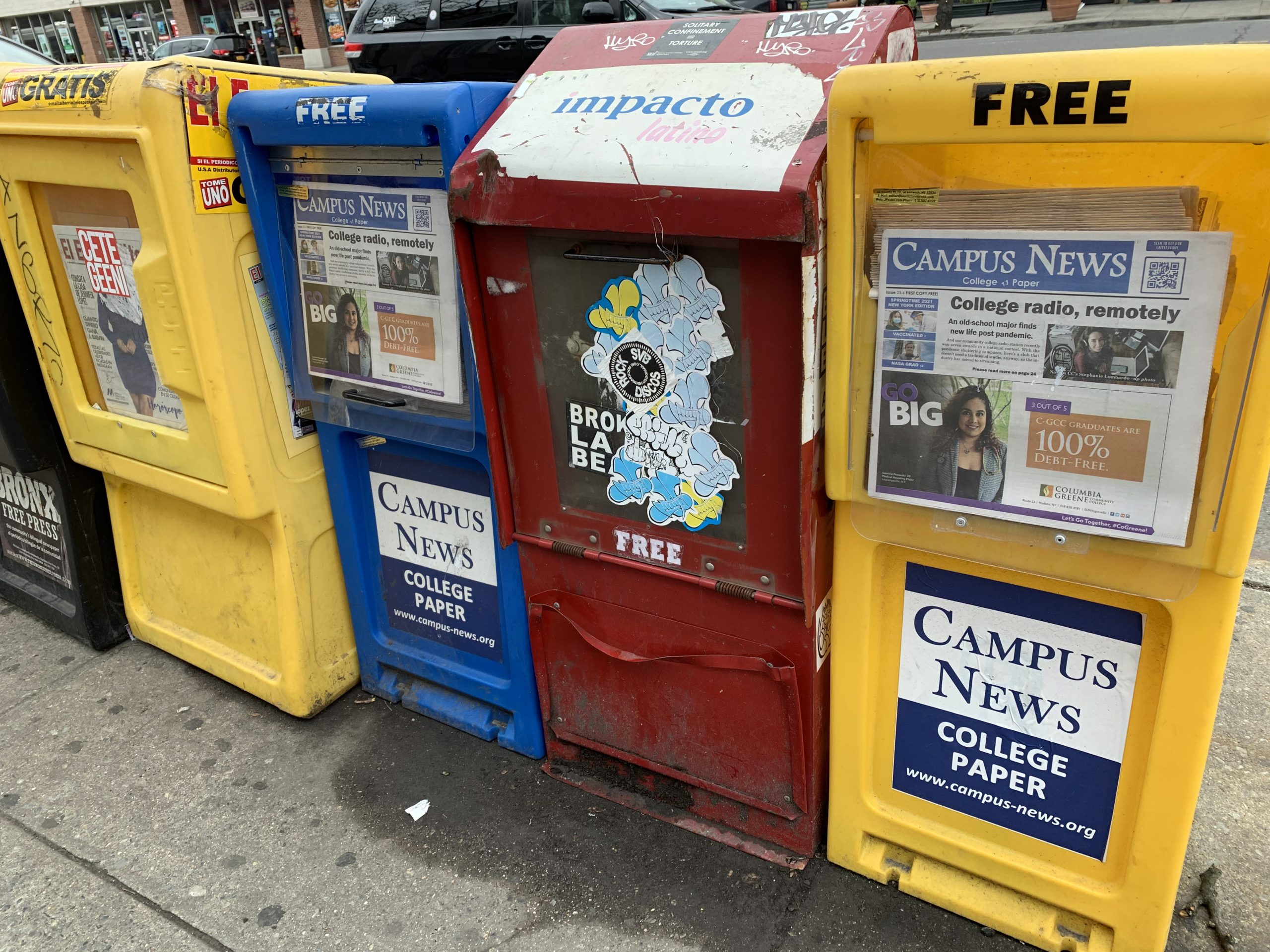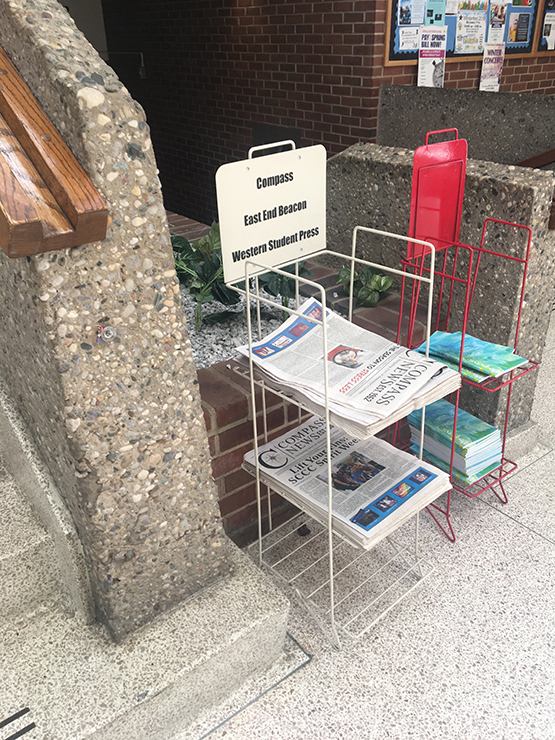By Darren Johnson
Campus News
I’m really exhausted by all the doomsayers who keep repeating, over and over, that print newspapers are dead. They have been saying it for decades – amplified by social media and search engine algorithms, as the Internet WANTS newspapers to be dead (and they’ve done everything possible to add nails to the coffin).
And, no doubt, newspapers as we knew them late last century really can’t exist anymore. Ones with buildings that require heat and employees who require decent pay and benefits.
But somehow newspapers existed before the big chains corporatized everything. In rural communities, even during newspaper boom years, many papers got by with minimal staffs. Often just one person.
People are conflating newspapers with journalism; you know, writers with some professional training and under the air of objectivity, covering government meetings and such.
And, certainly, that business model is in trouble, but if you break it down otherwise, newspapers are just a product, like anything else. I equate a newspaper with a small artisan company – making bread, birdhouses, beer or whatever – you put it out there, and, if you have customers, you’re in business.
This is capitalism, right?

Because, Covid proved, you can make a newspaper from a cozy living room. Have your writers send in some work by email. Pay them a few bucks if you have it, lay the thing out on your sofa while letting Netflix run your favorite series on loop, package it up, send that to a printer, and then go there, get the copies, distribute, etc., etc. It doesn’t have to be ultra-complicated.
But then people will say, what about the journalism?
I’d contend there WAS journalism in newspapers 100+ years ago, when they operated on a shoestring. I regularly read old papers for an archive column I gather. The editors were aware they were selling a product, and they made the paper more interesting than the safe, let’s-not-get-sued McNewspaper corporate papers we see today.
They still attended trials and government meetings, but they wrote in a more dramatic prose that probably left the reader more satisfied than AP Style stories do today. Were they less objective? I’m not sure if a writer can truly be objective, and what’s the harm from a few adjectives here and there?
Here’s an excerpt from an article dated Feb. 7, 1923 – 100 years ago – from our sister newspaper, The Greenwich Journal & Salem Press (it’s about a court case where a younger woman was convicted of extorting an older, married man for money):
Sensational scenes marked the close of the trial on Saturday. District Attorney Bascom bitterly denounced the defendant and branded her with ugly names, which caused verbal outbreaks on the part of the woman, her daughter and her son-in-law.
Mr. Chambers in his argument for the defense denounced Steele and wanted to know why he wasn’t on trial for his offenses. He also attacked Vosburgh, who he said would escape with a suspended sentence because he has turned state’s evidence and laid all the blame for the affair on the woman. Replying to this, Bascom asserted that he would never give his consent to a suspended sentence to Vosburgh.
After the jury had reported its verdict and a court recess was announced Alex Sleight approached Mrs. Blanchard. She denounced him for being to blame for her plight, and her daughter joined in a verbal attack on Sleight, who seemed rather dazed. Then Mrs. Blanchard advanced to District Attorney Bascom and held out her hand, which the prosecutor ignored. "I’ll get you when I get out," the woman threatened as she was conducted away.
Another scene occurred in the lawyers’ room in the rear of the courtroom, where Mrs. Blanchard was taken to wait for the crowd to disperse. In this room, she came face to face with R.D. Steele, chief witness against her.
"I have got to go to jail," she said to Steele. "A young woman like me. You ought to go there."
With that she struck Steele across the face. Steele was hustled out of the room by Henry Buckell before the affair went any further.
Now, that’s writing! And you can’t say it’s not journalism – the writer attended the proceedings and wrote what he saw. And this was for a tiny, rural newspaper in Upstate New York. Could you imagine if the writer were in a bigger city? He’d have even more to write about.
We need to bring back this level of storytelling.
 Darren Johnson keeps busy making this newspaper, and another and teaching some college courses. Contact him at editor@journalandpress.com.
Darren Johnson keeps busy making this newspaper, and another and teaching some college courses. Contact him at editor@journalandpress.com.








Facebook Comments